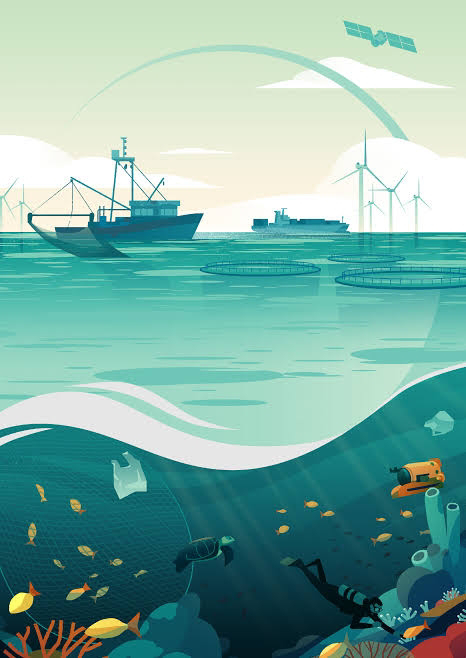CLIMATE EMERGENCY DAY: URGENT CALL FOR GLOBAL ACTION AND BEST PRACTICES FOR WORLD LEADERS
Abdulquadir Iyanda Jimoh
Rising temperatures continue to fuel natural disasters and weather extremes. Leaders need to take decisive action and implement the necessary solutions to prevent the most severe climate impacts from becoming irreversible.
As our planet grapples with the intensifying consequences of climate change, the need for immediate action is more pressing than ever. Recognizing this critical urgency, the concept of Climate Emergency Day has emerged to galvanize global efforts and encourage world leaders to adopt sustainable practices. This article explores the significance of Climate Emergency Day and presents a set of best practices that can guide policymakers in their pursuit of a cleaner, greener future.
Understanding the Importance of Climate Emergency Day:
Climate Emergency Day is an international day of mobilization, designed to emphasize the severity of the climate crisis and demand immediate action from governments, organizations, and individuals alike. It serves as a wake-up call and a reminder that we have no time to waste in addressing the imminent threats posed by climate change. By dedicating a specific day to this issue, world leaders are urged to prioritize climate action and ensure that sustainability becomes a fundamental aspect of policymaking.
Best Practices for World Leaders:
To effectively tackle the climate crisis, world leaders must embrace a range of best practices that address various aspects of sustainable development. Here are a few key recommendations:
1. Transition to Renewable Energy:
One of the most impactful steps toward reducing greenhouse gas emissions is the widespread adoption of renewable energy sources. Leaders should prioritize and invest in the development of solar, wind, hydro, and geothermal energy, encouraging innovation and establishing favorable policies to expedite the energy transition. Additionally, greater emphasis should be placed on improving energy efficiency through technological advancements.
2. Invest in Sustainable Infrastructure:
Leaders must recognize the importance of sustainable infrastructure development to support economic growth while minimizing environmental impact. Investments in public transportation, eco-friendly buildings, and green spaces are imperative. Encouraging the use of electric vehicles and creating smart cities with efficient resource management are also steps that should be prioritized.
3. Promote Circular Economy:
A transition from our current linear economy, which focuses on "take, make, and dispose," to a circular economy is crucial. Leaders should advocate for policies that encourage recycling, waste reduction, and reuse of materials. Foster innovation in sustainable product design and manufacturing, ensuring the principles of a circular economy are embedded within industries.
4. Prioritize Nature Conservation and Ecosystem Restoration:
Preserving and restoring natural habitats is essential for combating climate change. Leaders should invest in reforestation programs, protect biodiversity, and strengthen efforts to conserve oceans, forests, and wetlands. These actions not only sequester carbon but also contribute to the overall health and resilience of ecosystems.
5. Implement Strong Climate Policies:
Effective climate policies are vital for holding businesses accountable and incentivizing sustainable practices. World leaders should introduce and enforce regulations that effectively curb greenhouse gas emissions, impose carbon pricing mechanisms, and provide economic incentives for sustainable projects. Furthermore, international cooperation should be fostered to address transboundary environmental challenges.
6. Climate Education and Public Awareness:
Addressing the climate crisis requires a shift in mindset and behavior on both individual and collective levels. Leaders must invest in climate education programs to increase awareness among citizens and foster a sense of personal responsibility. Raising public awareness through campaigns, education initiatives, and partnerships with civil society organizations can create a more engaged and informed society.
Finally, Climate Emergency Day offers an opportunity for world leaders and policymakers to reevaluate their environmental commitments and embrace a holistic approach to sustainable development. By transitioning to renewable energy, investing in sustainable infrastructure, promoting a circular economy, conserving nature, implementing strong climate policies, and promoting climate education, leaders can create a pathway toward a more resilient and sustainable future. As we collectively face the climate emergency, decisive leadership, and urgent action are our only hope of safeguarding our planet for generations to come.
We are in a Climate Emergency. As of today, we now have 5 years to push our leaders to enact the bold solutions needed to avoid the worst climate impacts from becoming irreversible.
No More Delays. No More Denial. We Must Act Now.
#Climate Action #ActInTime, #ClimateClock, #ClimateEmergencyDay, #ClimateEmergencyDay, #5years, #Biodiversity #CircularEconomy.





Comments
Post a Comment